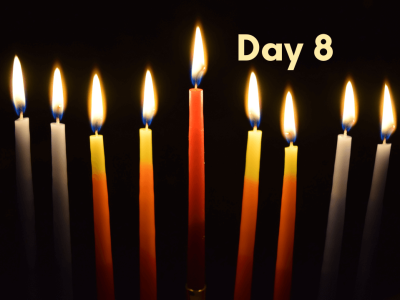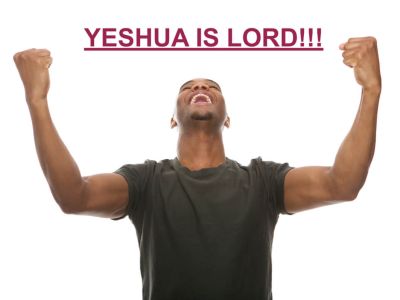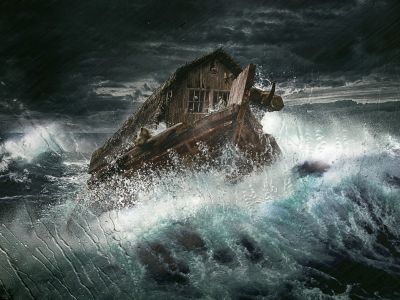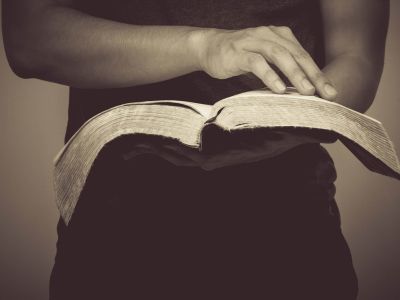Don’t Disqualify Yourself!
Don’t Disqualify Yourself!
In chapter 23 of this week’s Torah portion, Emor, which means “say,” we have the main instructions for the Feasts of the LORD. But because that topic has been covered extensively by both me and many other teachers, I’m going to take time to unpack the part of the parsha that deals with the regulations for the priests. There are several important things we can learn from these instructions, so let’s jump right in!

The first thing we learn in Leviticus 21:1-4 is that the sons of Aaron, who were in line to be high priests, could not defile themselves for the dead. This means that they were not to go through the traditional mourning process that others went through when someone died. If they did, they would automatically disqualify themselves to minister before Yahweh until they were cleansed. The only exception for this would be if they were the closest of kin. In other words, he could allow himself to be ritually defiled for someone such as his parents or siblings. Other than that, he was not to approach the dead for any reason.
The reason for this prohibition is because Yahweh and all that is considered kadosh (holy and set apart) represent life. There can be no death associated with that which is life. The blood of animals, although the thought of as death, was, in fact, life due to the fact that they were laying down their lives so that man could live. There can be no greater display of life than the substitution of one life for another. This is why Yeshua said in John 15:13 “Greater love has no one than this than to lay down one’s life for his friends.” That kind of death actually cleanses the temple. If a priest was exposed to human death, on the other hand, that would cause his temple to be defiled as that atmosphere of death, if brought into the Holy Place, would defile the entire abode of the Almighty.
In verse 4 it says “Otherwise, he shall not defile himself, being a chief man among his people, to profane himself.” Incredibly, the Hebrew word for “chief” here is the same word for “husband.” The high priest was the husband of Israel and if he was to walk in that role, he was to remain pure, holy, set apart, and full of life. Today, Yeshua is our High Priest and is also coincidentally our Husband. He willingly laid down His life as a substitutional atonement sacrifice to cleanse us from our sin. This beautiful act of husbandry was set to be the ultimate example of how we are to operate, as well.
PRACTICAL APPLICATION
Today, we are the temple of the Holy One. He resides inside of us. Unfortunately, if we choose to disobey His Word, or willfully allow unholy things or people to enter our lives, these actions immediately create a distance between us and the Creator. The Spirit cannot dwell in a place that threatens His holiness. The Creator begins the process of concealing Himself from that person in an effort to both protect His holiness and the person from sudden death by a Holy God. This is why Paul says in Philippians 4:8, “Finally, brethren, whatever things are true, whatever things are noble, whatever things are just, whatever things are pure, whatever things are lovely, whatever things are of good report if there is any virtue and if there is anything praiseworthy–meditate on these things.” Anything else will defile us.
When the death of sin is found in us, it creates separation and concealment. This concealment is designed to bring us to a place where we feel the separation of His presence, a separation intended to cause us to repent of our sin, plead the blood of Yeshua, and be washed in the water of the Word. This is the Torah’s instruction for cleansing. The person recognizes their sin (repentance), brings a sacrifice to the altar (blood of Yeshua), and is to wash in water to be clean (being washed in the water of His Word). Bottom line? Sin brings death. We are called to be priests. If we don’t want to disqualify ourselves from His service, we must stay away from it!
Finally, a priest carries the role as husband and leader. If we are called to be priests under Yeshua our High Priest, then we are to follow His Torah example of being good husbands. We are to lay our lives down for one another and to choose to be holy as He is holy. There’s a reason why “many are called, but few are chosen.” It’s because few actually qualify for the call. They defile themselves through the law of sin and death.
Let us be pure and undefiled before Him today! Don’t let a moment go by without doing everything in your power to make things right with your neighbor and to live pure and holy lives!
Shalom,
Jim Staley
2 May 2017












